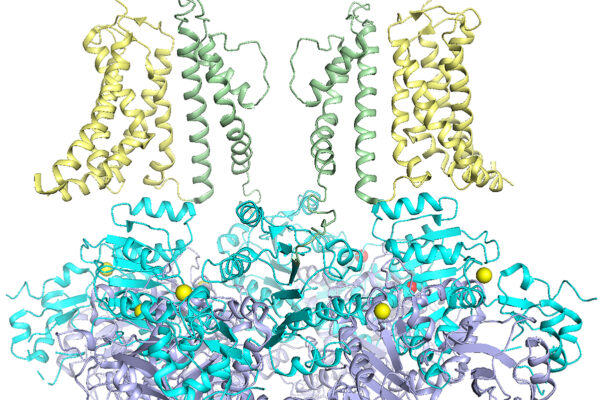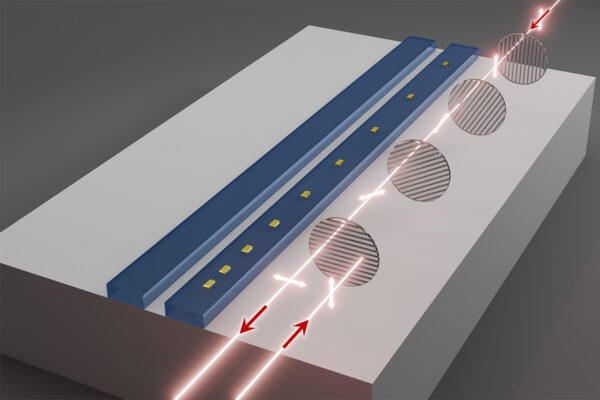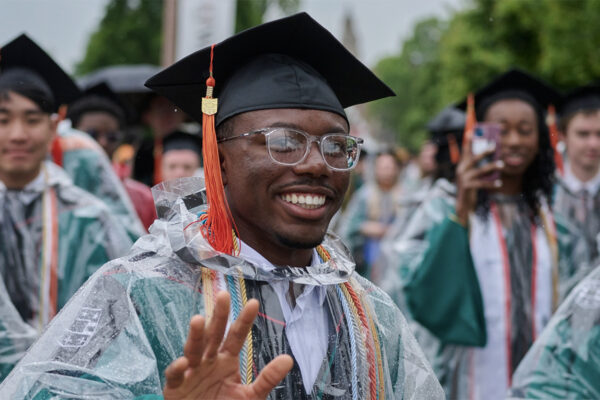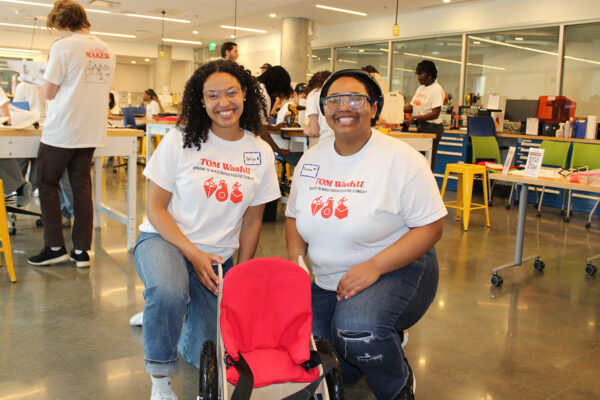Research untangles role of stress granules in neurodegenerative disease
Researchers at WashU and St. Jude Children’s Research Hospital have found that biomolecular condensates play a role in suppressing the effects of ALS-causing mutations.
Myosin makes the moves to keep cell processes humming along
Biomedical scientists at Washington University in St. Louis and Duke University report new insights regarding the role of movements of molecules as drivers of condensation in plant cells.
Genetic mutations in potassium ion channel target of new drug development
Researchers at WashU will study ways to fix malfunctioning ion channels responsible for neurological and heart illness.
A new approach to control light in photonic circuits
Researchers at WashU have developed a simple, efficient way to enable one-way light transmission in photonic chips.
Commencement vlog: Simone, smiles and flying mortar boards
First profiled as first-year students, four seniors captured the sights and sounds of WashU’s Commencement for a graduation day vlog.
Removing selenium from water takes iron strength
Environmental engineers at WashU have developed critical methods to remove toxic selenium from water.
The mysterious chemical world inside nanopores
Material scientists at Washington University have found ways to control contaminants in nanoporous materials used in water treatment and other manufacturing processes.
Kamilov named Donald L. Snyder Career Development Professor
Ulugbek Kamilov, an engineer at Washington University, has been installed as the inaugural Donald L. Snyder Career Development Professor at the McKelvey School of Engineering.
Made with care
Biomedical engineering students from Washington University have started an assistive technology-focused student group to help local communities, including creating wheelchairs for young children.
McKelvey Engineering honors 2025 distinguished alumni
The McKelvey School of Engineering at Washington University in St. Louis has announced its recipients for the 2025 alumni awards.
View More Stories









